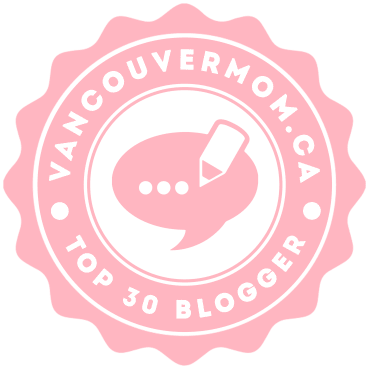|
Do you know that you can design relationships and partnerships? If you’re in a relationship or partnership, whether personal or professional and you think it’s not going well or it’s not what you had imagined it to be, then it may be time to design it. When you hear the word “design”, you might think, “How do I design a relationship? What does that mean? We MAKE friendships or we START a partnership, and so how is there this thing called designing?” In coaching, we talk about designing relationships because we have the ability to talk about how we want things to be in our relationship. It's better to design it from the beginning. Now, for those of you who have the Dynamic You book, this is some of the stuff that I cover in the Dynamic You Pillar called “Collaborate”. Designing Relationships Imagine this: You're at a pool. You're going to go swimming, and this is your second day at the pool. Maybe you're on vacation, and on the first day you got a really bad sunburn. What do you do? Well, if you're anything like me, maybe you cover up and rather than just putting sunblock on, you actually put on a t-shirt. You jump in the pool, and you feel the relief from the heat. Then all of a sudden the lifeguard starts yelling at you, blowing their whistle, and kicking you out of the pool. They say, “You can't wear a shirt in the pool.” Now, if you had already looked at the rules, and it didn't say that there, or you didn't see the rules, and it did say it there, you now feel embarrassed. Because if you knew that was a rule, you wouldn't have done it. There wouldn't need to be this whole show of whistling and kicking you out of the pool. It's the same in relationships. When you don't know what the other person expects, it's so easy to mess up their rules, their guidelines, and their expectations. What could happen is they completely end your partnership or your relationship. It could cause a massive fight or embarrassment, shame, and guilt on your part. What about if you're on the other side? What if you have these internal rules or guidelines for relationships and partnerships? Maybe you think it's so obvious. Why would the person ever do that? Of course, they should never do that. Well, you'd be surprised, right? By you stating these things up front, it's so much easier and less uncomfortable for you than to have to be that lifeguard blowing your whistle and yelling at them to get out of the pool. You can just say, “Hey, remember when we talked about this? That's not happening right now” or “You went and did that thing that has gone against how we've designed things to be.” If you remember back to when you were a kid, maybe in a classroom or on a team or club, the teacher or the coach would set up guidelines and rules for the classroom, practices and games. For example:
There are certain rules and maybe you were involved in making the rules of the classroom or wherever you were. That's what we want to see in relationships. We want that ability for each person coming to the relationship to be able to say what they're wanting. Coming from that place of ideal: What is ideal for this relationship, partnership, collaboration, affiliate, whatever it is. In the collaboration pillar, it explains a little bit about what a collaboration is. I want you to just think of two people working together or two groups of people working together. It can be called a collaboration, a relationship or a partnership. In designing relationships, it's important that each person answers these in advance of meeting:
Also answering,
Now, there's even more that comes into it. I design with my clients how they want things to be. We talk about the best way to communicate with each other and how coaching sessions are going to go. There's even a “What do we do if someone doesn't like how the other person's being in the relationship? How do we redesign that?” These types of questions or statements are more so with collaborations and partnerships, involving a project or business of some kind. But in a relationship, in a friendship, in a romantic relationship, how do you design it? Let me give you an example: You meet someone out. It could be through a mutual friend. It could be at the playground because you have kids that are playing together, wherever it may be. You hang out a few times. Then maybe you want to get clarity on what type of relationship you have. This often happens in love or romantic relationships where you want to know:
You talk about those things. The same in a friendship. You can just ask simple questions like, “Hey, I love that we're hanging out. Is this working for you? Do you want to hang out more or do other kinds of things?” Start off by saying these things above rather than, “Hey, new friend, let's design the relationship.” You can also give some positive feedback, “Hey, I like that we're hanging out more. I love that we do active things together. Let's do that more.” Or “I love how we're open, and we can talk with each other. Let's continue that.” Or maybe you suggest things like, “Hey, I love that we're meeting up and we chat. But I’d love to jump on the phone with you every now and again and have more of a conversation.” Rather than sitting there hoping and wishing for something positive in that relationship to develop more, why don't we say it when we talk about it. Then other things like, “Hey, you know how I often say a lot of personal things to you. I trust that it's in confidence and that it's not leaving our conversations, and I appreciate that you're always showing up on time, that's really important to me.” Expressing these things in the beginning, in a relationship, a friendship, whatever type of relationship, really helps to start to lock in how things are. The key thing is just thinking about designing from the beginning. Designing Partnerships Let's go into partnerships because I think that's where more naturally we make this happen, especially in business relationships. I set some of the statements that you can ask yourself. You might want to go back, pause, and write your answers down. It's really nice that you give them a heads-up, “Hey, I want to talk about these things. I want to go through some expectations for our collaboration or our joint venture”. Or asking them to have a set of guidelines that you'd like to work by when doing this type of partnership or this type of affiliate, collaboration, project, or whatever it is. Let them provide you with their needs and wants and then you provide feedback. Having a set amount of time to be able to do this is also crucial. Having a half an hour conversation where each person writes down and then shares the answers to those statements or questions. Then also ask yourself, “What's ideal for this relationship?” Having that exit strategy is also vital. For example saying, “Let's set this up for the next three months, and then at that time, let's have a conversation about how things are going. If either of us doesn't want to continue at that point, then we have the easy way out to part.” You don't want to lock yourself into an infinite partnership or collaboration. That's awkward when someone has to break things off. If you say, “Let's just try this for three months” or "let's try this for one event”, or “for one joint venture”, you have that opportunity as an out without it being uncomfortable or burning any bridges. Anytime I go traveling with someone, I always make sure to design the relationship for that trip. The first time that I went away with someone I didn't really know, we were staying in the same hotel room. Some of the things I asked her where:
All of these questions help to make it less uncomfortable. Otherwise you might feel annoyed that your roommate is getting up at five in the morning to do exercises in the room. Or that your roommate is staying up until 2-3am talking on the phone or doing work. This way you can help each other to have the right expectations and respect what each other needs. The example I gave of the person I stayed in the same room with for the first time all those years ago is now a very close business and life friend of mine. Yes, when I asked her those questions, she thought it was a little bit strange. But we had the most amazing time and found out things that each other likes. One bonus was, she likes to get up early, and I hate getting up early. So she got up early and went and grabbed us breakfast. She got us muffins, fruits, and coffees and I got to sleep in. By then, I wasn't so grumpy, and I was ready to go. But I don't mind at night being the one to kind of tidy up in the room or make sure I shower at night so that in the morning, she has enough time to do what she needs to do. We've been able to really coordinate this because I've had times where it's been very uncomfortable traveling with someone I didn’t do this with and did not work out well at all. But this was before I knew about designing relationships and before I had my coaching certification. I'll give myself a little bit of grace for not knowing about it. But now that I know, I'm always designing relationships, partnerships, and collaborations. This is the way that you have more success from the beginning. Wrapping Up As you develop more and more collaborations and partnerships, you're going to think about, “What do I now need to add in?” Because maybe you thought, “It’s so obvious that we'll both promote.” You say, “Yes, yes, we'll both promote”, but what's the definition of promotion for both of you. Is one of you thinking, “I'm just going to post this once on my social media platform, my personal one?” And for the other person, does it mean emailing your list three times, going live about it and posting on every single platform plus stories multiple times? You don't want to be resentful that you're promoting more. You also don't want to be ignorant to the fact that you're not promoting enough. That's what breaks really great potential partnerships. I can go on and on and on and on for a long time about this, but I’m guessing you’re already thinking of how people have ticked you off in a relationship. Having the honesty to be able to say things in the beginning will give you the opportunity to really hit the ground running with that partnership or relationship. P.S. Do you want to know the three dangerous trends professional women face that keep them overworked, overwhelmed, and pulled in a million directions? If yes, then download my free ebook today! Read my other blogs here:
0 Comments
Your comment will be posted after it is approved.
Leave a Reply. |
Archives
April 2024
Categories
All
|
My services |
Privacy Policy
|
Coaching Resources |
Connect with me
|






 RSS Feed
RSS Feed